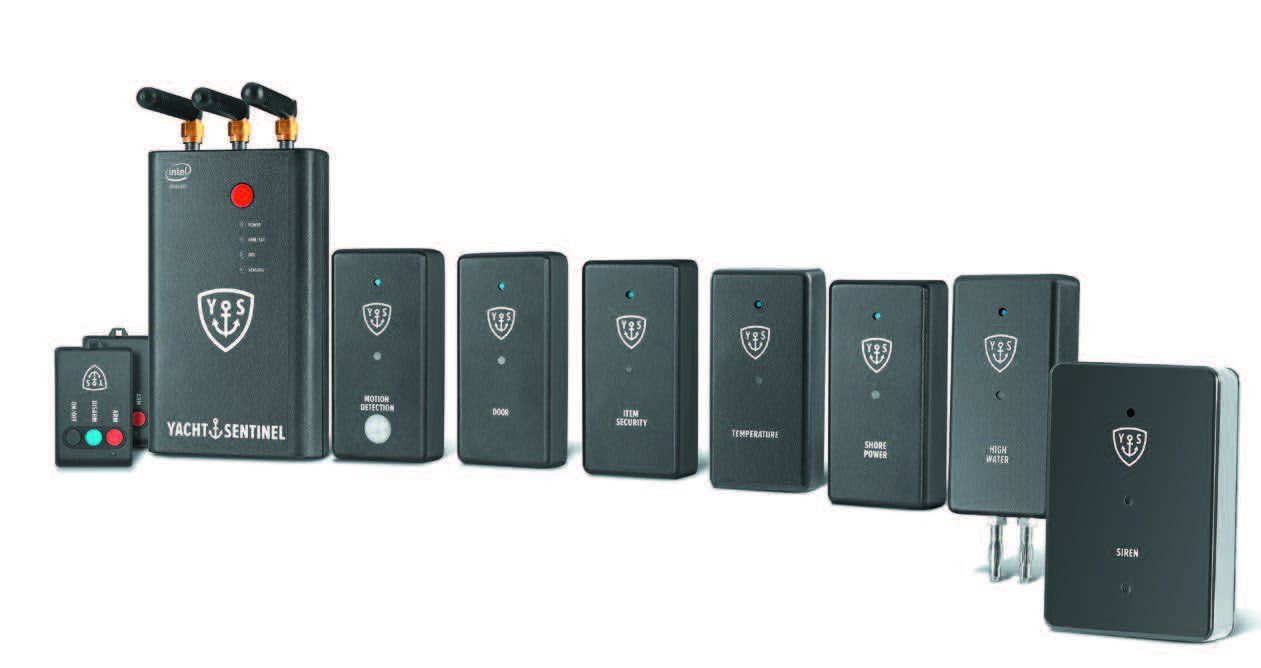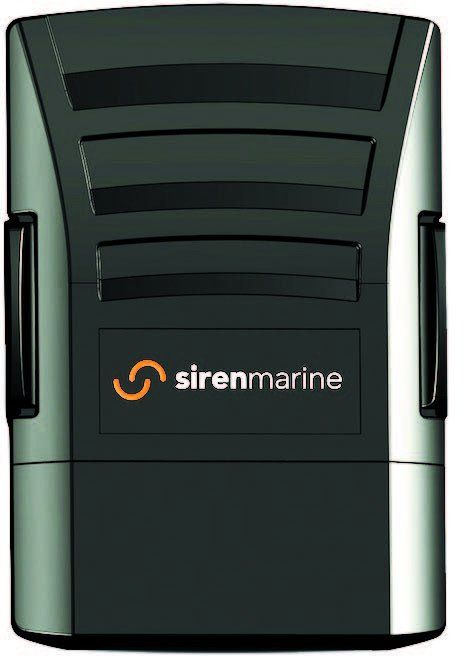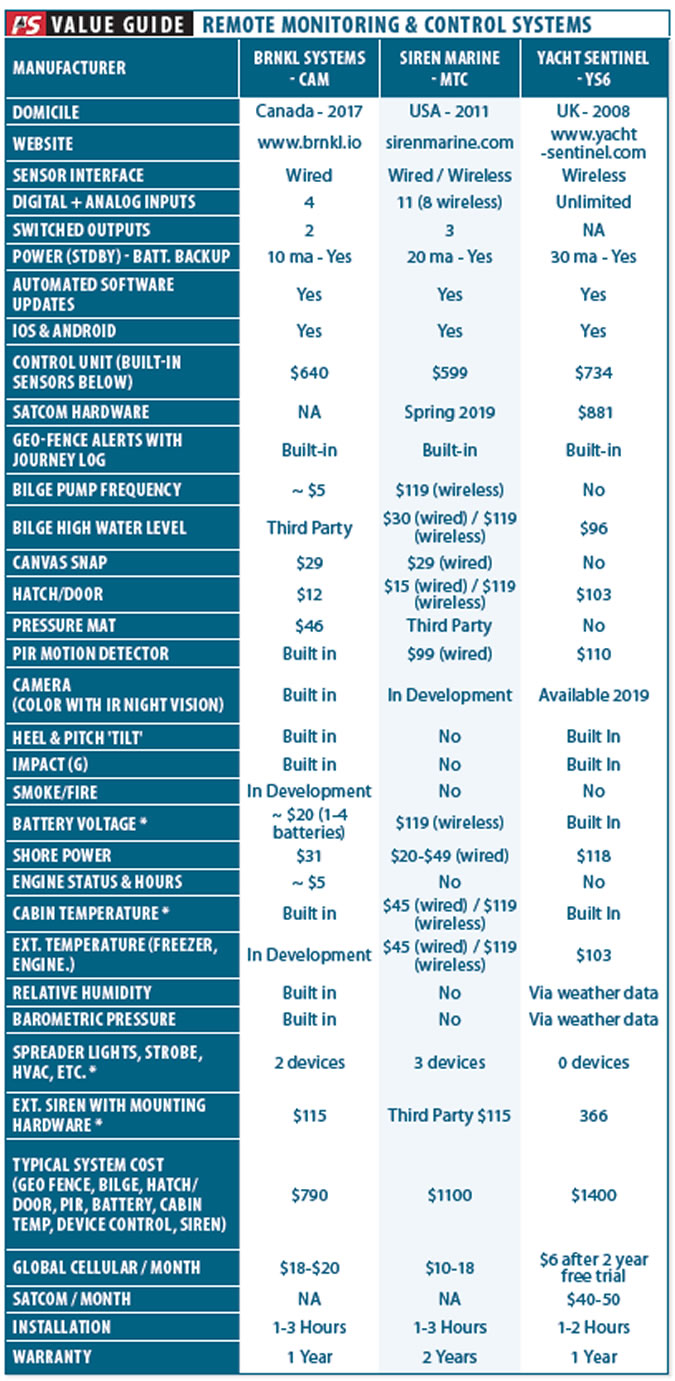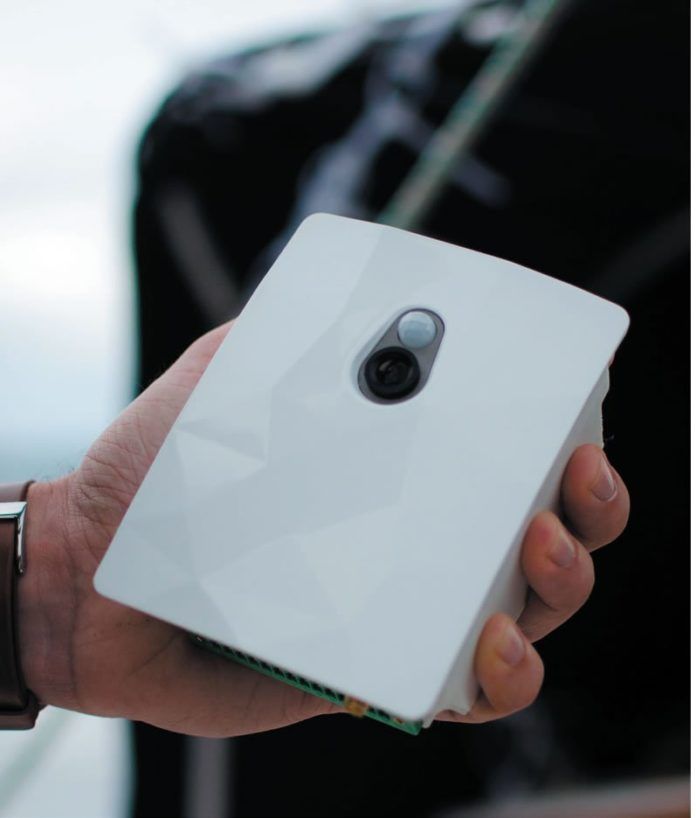Most of us spend a great deal of time away from our boat. Whether shes on the hard, moored in our home harbor or anchored in a foreign port, we want to know whats going on with critical systems. Is my vessel where it should be? Has someone disconnected a power source or tried to gain access? Is the bilge pump cycling more frequently? Is the house bank okay? Is the freezer holding its set-point? If your boat was struck by another vessel, wouldnt it be helpful to have photos?
Here we look at three systems that will allow you to monitor your boat, set up automatic alerts, and even control on board equipment via a mobile app on your smart phone. Possible actions that can be carried out remotely include turning on or off lights or systems. In effect, you have a virtual crew member who can help enhance security, keep onboard systems healthy, and alert you if something is amiss. You can be connected to your boat anytime, anywhere-eliminating boat worry and reducing the risk of theft, water damage, battery sulfation, and food spoilage. You might also qualify for a 3-10 percent discount on your insurance.
The system components that make this possible include a control unit, wired and wireless sensors, and access to the Web via cellular broadband, or satellite networks. The mobile Apps typically include arming options, a dashboard, GPS geo-fence definition (defining a geographic perimeter for activating specific alerts, such as anchor dragging), customizable alarms with push alerts, event logging, time series data views and device control. Automatic updates ensure that the control unit and app software is future proofed.
This product comparison focuses on three competitors in the core market: BRNKL Systems, Yacht Sentinel, and Siren Marine. It does not include stand-alone alarm systems like Aqua Alarm or high-end competitors like GOST. The adjacent table is intended to standardize the sometimes-confusing marketing material and help sailors determine which system meets their needs.
This is a preliminary report, comparing features and prices. PS tests on performance and reliability will follow. If you have experience with or interest in a specific system, send us your input via e-mail at [email protected].
BRNKL Systems
BRNKL offers a control unit with GPS, a camera, and the largest number of built-in sensors: passive infrared sensor (PIR, i.e. motion detector), cabin temperature and humidity, barometric pressure, heel, pitch, and impact). You can also opt for an external camera. Based on our initial research, no other maker offers a camera at this price point. BRNKL is developing wired temperature probes and integrating smoke/fire detection.
Connect it to your bilge pump, up to four batteries, the siren and devices you wish to control, and you’re up and running. BRNKL appeals to the DIY boater who needs a camera and wants the most information available at the loweststart upcost.

Yacht Sentinel
The Yacht Sentinel Control Unit has built-in GPS and sensors for battery voltage, cabin temperature, heel, pitch and impact. YSs communication capabilities including cellular access to 400 telecoms in 170 countries and optional SatCom backup. All external sensors are 915 MHz wireless making it a plug and play affair once you connect 12V power to the central unit.
Wireless performance is stated to be superior to 2.4 GHz Bluetooth and batteries can be expected to last a season. YS doesn’t require a service plan at purchase, so users have two years free communication and only pay $70-year thereafter. The YS6 appeals to cruisers who don’t need device control, want an easy installation and are sensitive to recurring fees. YS is expected to offer a camera this spring.

Siren Marine
Siren Marine has been expanding their company and refining their product since 2011. The MTS system (monitor, track, and control) features a control unit with a built-in GPS, and the ability to monitor a broad array of wired and wireless sensors, providing flexibility during installation. The wireless sensors are 900 MHz and use a lithium CR2430 battery that can be expected to last two years.
The IP67 hardware appears to be robust with sensors tethered to standardized wireless modules. The ability to control three devices is a plus. Their 2-year warranty reflects the confidence they have in the engineering. The App is well designed, and you can now ask Alexa (Amazon smart speaker) to tell you the status of your vessel.
In addition to a well-organized website including video tutorials and documentation to help you design and install your system, there are trained Customer Support staff who can field any question.
The MTC system appeals to the boater looking for a scalable system including a smart balance between wired and wireless. SatCom communication is expected this spring and camera and proprietary sensing technology later in the year. We’ll keep you abreast of any other notable improvements.
If you’re contemplating buying, you do have a chance to try. Each of these companies offer free trials which is a good way to test each product and get a sense of what it’s like to own it. Look for upcoming reports covering these and similar products in more detail.





































I installed a Siren Marine system this past summer and I am very happy with it. The app’s ability to remotely monitor onboard conditions and send me preset alerts instantly and log those incidences over days, weeks, months is a great feature. I know when the cabin is opened and closed within seconds. I know when the bilge pump is activated and I know the temperature of my engine block, cabins and refrigerator. The wireless sensor units are small, easy to setup and work flawlessly. Did that big thunderstorm knock out shore power? There’s a sensor for that (two types actually). Are the batteries fully charged? Yup, you can check that as you leave work and head to the marina for the big race. A camera would be nice but that’s a lot of bandwidth. Perhaps just a still camera for security/weather pics.
Thanks for sharing your experience, Warren. Keep us posted.